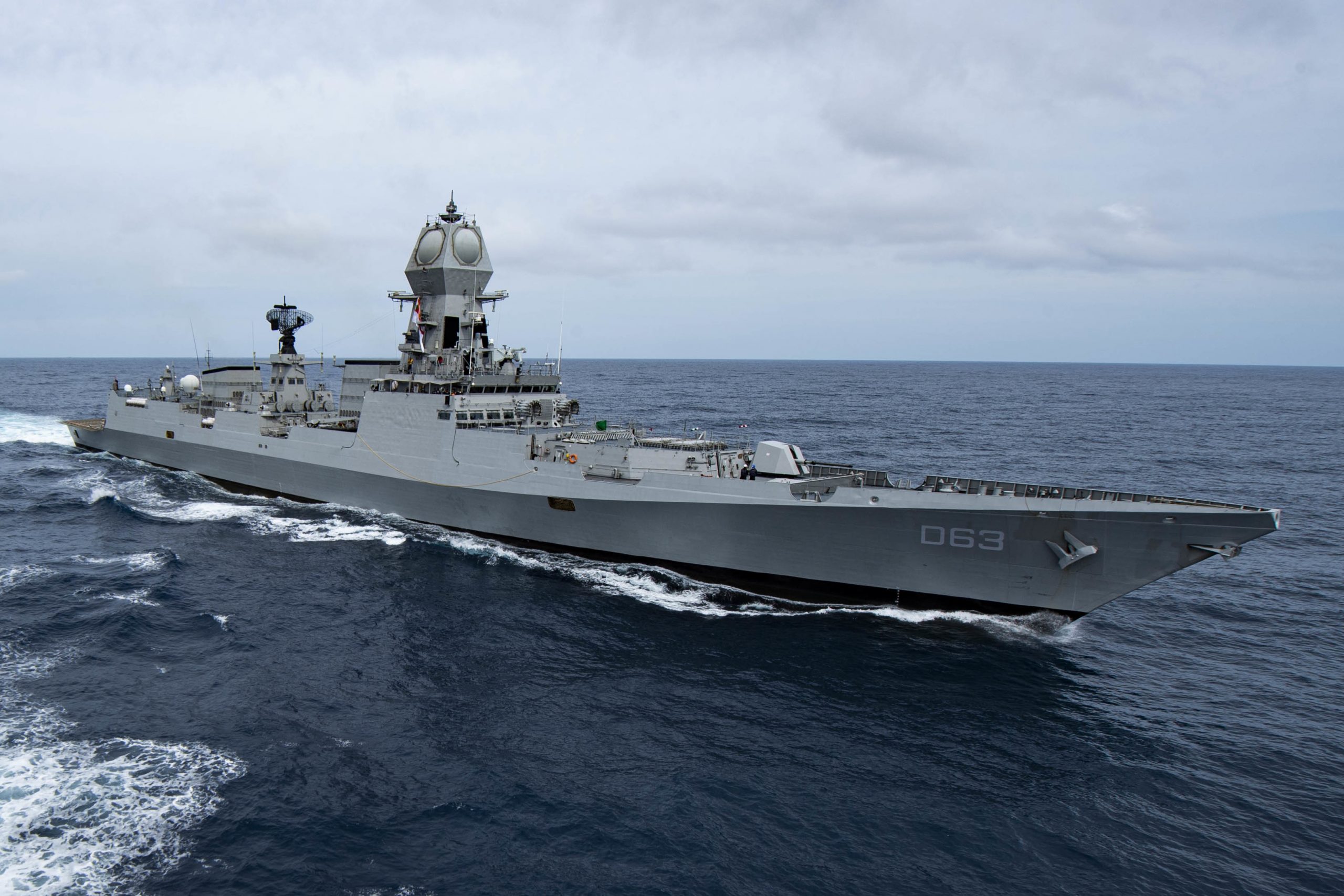

NEW DELHI: In a significant development, the Bab-el-Mandeb Strait, a vital maritime passage connecting the Mediterranean Sea to the Indian Ocean, is experiencing disruptions that could have severe repercussions on Indian trade and the global economy. This crucial waterway is responsible for facilitating over 50 per cent of India’s trade activities, with a substantial portion of its crude oil and liquefied natural gas (LNG) imports relying on this strategic route. Moreover, India’s exports to Europe, Gulf countries, and Africa heavily depend on the smooth operation of this sea passage.
The Bab-el-Mandeb Strait stands as one of the world’s major trade arteries, witnessing approximately 30 per cent of global container traffic, as well as a substantial volume of oil and gas vessels. However, recent attacks by Houthi militants on container ships navigating through this critical route have compelled major shipping companies, including Maersk, MSC (Mediterranean Shipping Company), Hapag-Lloyd, and CMA CGM (Compagnie Maritime d’Affretement – Compagnie Générale Maritime), to alter their routes, avoiding the Bab-el-Mandeb Strait. This sudden shift is causing disruptions in global trade patterns.
The impact of these disturbances is already visible in the financial realm, with Brent crude oil prices surging to over $78 a barrel. This rise comes after touching a low of $73.24 just last week. The situation has prompted British oil major BP to announce the temporary rerouting of tankers to circumvent the Red Sea due to the escalating threat posed by Houthi rebels from Yemen.
Also Read: From Company to D-Day, 5 must-watch movies on Dawood Ibrahim’s journey
It is clear that if there is any prolonged disruption in this critical shipping route could lead to a domino effect, affecting not only India’s trade but also global supply chains. The Bab-el-Mandeb Strait remains an area of concern as authorities grapple with finding a solution to ensure the safety and security of maritime traffic passing through this pivotal chokepoint.
On December 16 the rebel spokesman Mohammed Abdul Salam said neutral nation Oman had launched mediation efforts to safeguard shipping using the waterway.
“Under the sponsorship of our brothers in the Sultanate of Oman, communication and discussion continue with a number of international parties regarding operations in the Red Sea and Arabian Sea,” he said on microblogging X.
In response to escalating Houthi missile and drone attacks on ships navigating the Red Sea, the US unveiled a multinational security initiative on Monday, involving a coalition of 10 nations. Among the countries joining the initiative are Britain, France, Bahrain, and Italy, forming a united front to address the challenges posed by the Iran-backed Houthi rebels.
US Defence Secretary Lloyd Austin emphasised the importance of countries upholding the foundational principle of freedom of navigation and coming together to confront the threats posed by non-state actors. The coalition aims to coordinate efforts to quell Houthi attacks and ensure the security of maritime traffic in the Red Sea, a critical transit route responsible for up to 12 per cent of global trade.
The Houthi rebels, with backing from Iran, have intensified their attacks on tankers, cargo ships, and other vessels in the Red Sea. The recent targeting of two vessels, the Norwegian-owned Swan Atlantic and the MSC Clara, identified by the Houthis as ‘Israeli-linked,’ adds to a series of maritime incidents disrupting global trade. These attacks are viewed as an attempt to exert pressure on Israel in response to its conflict with Hamas militants.
In a statement, the Yemeni rebels claimed responsibility for a “military operation against two ships linked to the Zionist entity,” using naval drones. The rebels declared their intention to block ships heading to Israeli ports in the Arab and Red Sea until there was an increase in the allowance of food and medicine into Gaza.
The newly formed multinational coalition signals a collaborative effort to address the security challenges in the Red Sea and safeguard international trade routes from the disruptive actions of Houthi rebels. The situation remains dynamic, with global attention focused on diplomatic and strategic efforts to ensure stability in the region.